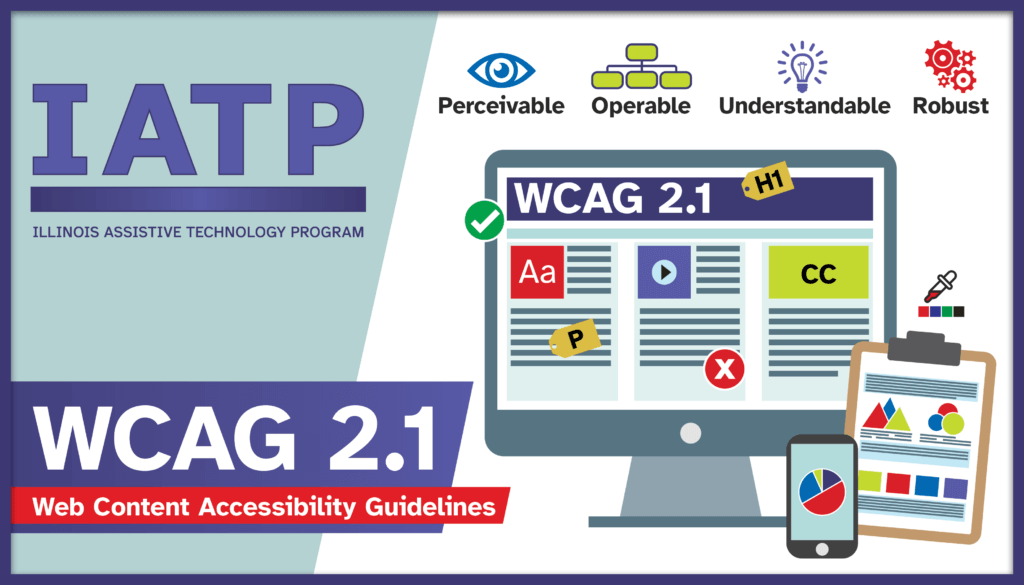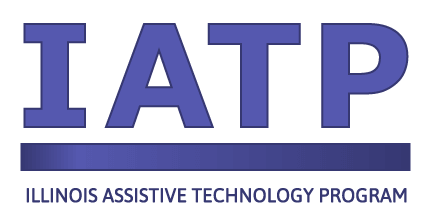On June 24, 2024, new guidelines for web content, mobile apps, and information technology will take effect.
 Following the April 24, 2024, announcement by the U.S. Department of Justice (DOJ) updating the Americans with Disabilities Act (ADA) Title II regulations, Illinois is following suit with an update of the Illinois Information Technology Accessibility Act (IITAA). Under the new IITAA 2.1 standards, information technology developed, procured, or substantially modified by state of Illinois entities after June 24, 2024, should comply with Web Content Accessibility Guidelines (WCAG) 2.1 AA standards. The IITAA 2.1 update will also keep Illinois current with federal information communication technology standards outlined in Section 508 of the Rehabilitation Act of 1973 (Rehab Act).
Following the April 24, 2024, announcement by the U.S. Department of Justice (DOJ) updating the Americans with Disabilities Act (ADA) Title II regulations, Illinois is following suit with an update of the Illinois Information Technology Accessibility Act (IITAA). Under the new IITAA 2.1 standards, information technology developed, procured, or substantially modified by state of Illinois entities after June 24, 2024, should comply with Web Content Accessibility Guidelines (WCAG) 2.1 AA standards. The IITAA 2.1 update will also keep Illinois current with federal information communication technology standards outlined in Section 508 of the Rehabilitation Act of 1973 (Rehab Act).
The IITAA 2.1 closely aligns state and local government accessibility rules with Title II of the ADA. This means the DOJ rule changes apply to all Illinois state agencies, departments, and local governments. Examples of state and local government include everything from big state agencies to state and local police departments, courts, and elections offices, as well as public hospitals, healthcare clinics, parks, recreation programs, libraries, and transit agencies. To clarify further, a state or local government that contracts with a business or not-for-profit to carry out duties on their behalf must make sure their contractors follow Title II of the ADA. The DOJ has posted a fact sheet that provides numerous examples of how the new ADA Title II rules will apply to state and local governments. The final published rule can be found online in its entirety at the National Archive Federal Register.
While the recent DOJ rule updating Title II of the ADA applies specifically to web content and mobile apps, the IITAA 2.1 update extends further to require all information systems and information technologies procured, developed, substantially modified, and used by Illinois state and local governments are accessible to people with disabilities. Information Communication Technology (ICT) is the term often used to encompass all these various technologies. ICT includes electronic documents, websites, mobile apps, and equipment such as computers, tablets, smart phones, and information kiosks. Even office machines like photocopiers, fax machines, and hard-wired phone systems are considered ICT. To learn more about ICT standards and creating accessible content, contact IATP by phone at 217-522-7985 or by email: ict@iltech.org. More information on the IITAA 2.1 update can also be found on the Illinois Department of Innovation and Technology website:
What are the WCAGs?
The Web Content Accessibility Guidelines (WCAGs) are internationally recognized standards primarily used by web developers to ensure the accessibility of web content for users with disabilities including sensory, intellectual, learning, and physical disabilities. For example, a webpage coded with a logical heading structure will enable a user who is blind to access that web page using a screen reader assistive technology software application. The webpage will look no different to a sighted user, but the built-in code can help provide an equitable experience to the blind user. Other examples of WCAG 2.1 AA standards include guidelines for adequate color contrast between text and its background, captions for prerecorded and live videos, keyboard accessibility, and predictable and consistent webpage navigation.
The WCAGs are NOT laws. The WCAGs are a set of guidelines categorized into three levels of conformance: A, AA, and AAA. AA is the typical, mid-range standard of conformance that is recommended for most web content. AAA is the highest level of conformance, and while it is good to conform to the AAA standard, it is not always possible when content is complex or technical.
The new DOJ rule for ADA Title II and the updated IITAA 2.1 both point to WCAG 2.1 AA technical standards. A more current version of the standards, WCAG 2.2, was published in 2023, and WCAG 3.0 is currently being drafted; however, these standards have not yet been adopted. The World Wide Web Consortium (W3C) is an international forum dedicated to web accessibility for all. The W3C maintains the WCAGs along with providing developer tools and opportunities for public review and feedback as new standards are crafted.
